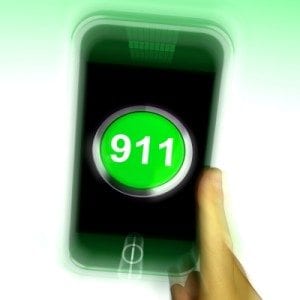MBTI® Test ESTJ Police, Fire, and Ambulance Dispatcher
Strong Interest Inventory® General Occupational Theme Code: Conventional, Realistic, Enterprising (CRE) (GOT)

Image courtesy of Stuart Miles at FreeDigitalPhotos.net
Hammer (1996) writes that Extroverted-Sensing-Thinking-Judging (ESTJ) Myers-Briggs Type Indicator® (MBTI® test) personality types have strong analytical and organizational tendencies and can excel at using these characteristics to solve complex problems quickly and effectively. Myers-Briggs test ESTJs also tend to be decisive, and are capable of implementing best practices and procedures with ease. With this said, MBTI test ESTJ personality types are often well-fit for careers such as emergency vehicle dispatchers.
Emergency Vehicle dispatchers work in and operate call centers or computer interfaces at emergency response centers. When someone calls, they question the callers about the nature of their emergency, their location, and other issues that may determine the type and degree of response needed. Then, they contact the relevant emergency resources (e.g., fire, police, and ambulance) and instruct the responders about the situation and response needed. Finally, they record the details of any calls or messages received and generally store them in a computerized database. This may also involve retrieving or updating records on stolen vehicles, wanted persons, or other information about property damaged.
In order to complete these tasks, emergency vehicle dispatchers often use a variety of different tools and technologies. These may include automatic call distributors (ACD consoles), mainframe consoles, radio scanners, multiline telephone systems, two way radios, and others. They also use a variety of different database user interface and query software (e.g., 911 system information databases; national crime information center databases, etc.), as well as word processing and web browser software. Emergency vehicle dispatchers also need to be comfortable working in customer and personal service, telecommunications, and need to have a baseline knowledge of public safety and security. With this knowledge, as well as communication in English and possibly other languages as well, they can effectively provide the assistance that others so badly need.
-
MBTI® Career Report
Price: $62.95 Buy NowDIGITAL DELIVERY
- Receive an in-depth 10-page report on your occupational matches
- Explore your preferred work tasks, environments, and industry matches
- Assessment sent digitally within 2-3 business hours of purchase
While the position of a dispatcher is highly demanding and takes a great deal of thinking and analysis, the vast majority (over 75%) of dispatchers only hold a high school diploma. While some may have attended college, almost none hold a bachelor’s or associate’s degree of any kind. Nonetheless, dispatchers require a high attention to detail, great dependability, and the ability to tolerate highly stressful situations—in other words, skills that are impossible to teach. These talents innate to ESTJs make them ideal emergency vehicle dispatchers.
Below are some employment trends for Police, Fire, and Ambulance Dispatchers:
- Median wage: $20.15 hourly, $41,910 annually
- Employment: 98,300 employees
- Projected growth (2018-2028): Average (4% to 6%)
- Projected job openings (2018-2028): 10,100
Visit Our MBTI® About Page and Our ESTJ Personality Type Page For Detailed Information on The ESTJ Personality Type
Visit Our Strong Interest Inventory® Resource Page To Learn About The (CRE) GOT
Click on one of these corresponding popular ESTJ Careers for detailed information including Career Stats, Income Stats, Daily Tasks and Required Education: Auditor, Commercial Pilot, Computer-ATM-Office Machine Repairer, Construction Manager, Correctional Officer & Jailer, Criminal Investigator, Home Health Aide, Personal Financial Advisor, Police & Fire & Ambulance Dispatcher, Sheriff & Deputy Sheriff.
Explore Our ESTJ Blogs Pages:
Explore additional information that delves deeper into the ESTJ Personality Type by examining various personality and career based subjects:
- Myers-Briggs test ESTJ Personality Type and Innovation Styles Blog
- Myers-Briggs test ESTJ Personality Type and Project Management Blog
- Myers-Briggs test ESTJ Personality Type and Emotional Intelligence Blog
- Myers-Briggs test ESTJ Personality Type and Leadership Blog
- Myers-Briggs test ESTJ Personality Type and Communication Blog
Click on a link below to read more about different MBTI Personality Types
| ISTJ | ISFJ | INFJ | INTJ | ESTP | ESFP | ENFP | ENTP |
| ISTP | ISFP | INFP | INTP | ESTJ | ESFJ | ENFJ | ENTJ |
References:
- Bureau of Labor Statistics wage data and 2012-2022 employment projections Onetonline.org
- MBTI® Type Tables for Occupations, 2nd Edition. Schaubhut, N. & Thompson, R. (CPP, 2008)
- Introduction To Type and Careers, Hammer, A. (CPP, 1996)

